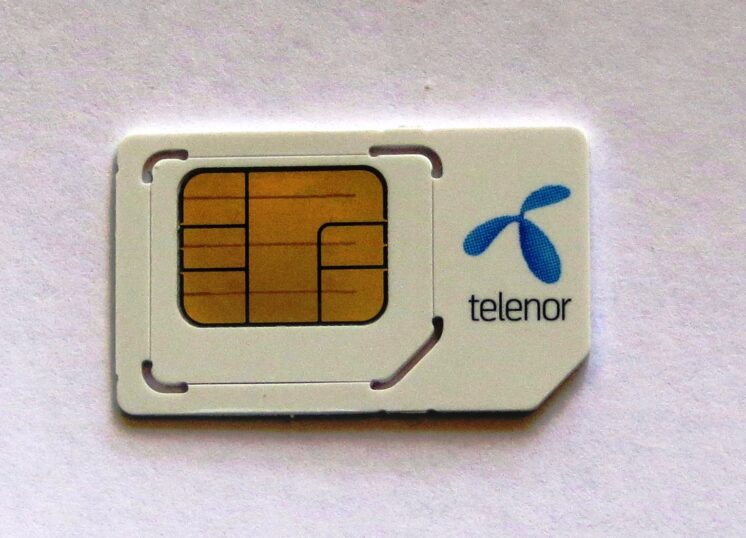A preliminary agreement reached between telecommunications company Telenor and 474 Myanmar civil society organisations (CSOs), represented by Mind the Gap consortium partner SOMO, demonstrates the potential of using international complaints mechanisms to challenge irresponsible divestment by companies.
 Photo: By Bjoertvedt - Own work, CC BY-SA 3.0, https://commons.wikimedia.org/w/index.php?curid=26827902
Photo: By Bjoertvedt - Own work, CC BY-SA 3.0, https://commons.wikimedia.org/w/index.php?curid=26827902From 2014, Telenor Myanmar Ltd, a subsidiary of Norwegian telecommunications company Telenor, provided a telecoms network and services to mobile users in Myanmar. In 2020, the company had over 18 million mobile users in the country. Following the February 2021 military coup in Myanmar and severe crackdowns against pro-democracy demonstrators, Telenor announced the sale of its Myanmar subsidiary to M1 Group – a Lebanese company with reported business ties to authoritarian regimes in other countries.
Telenor’s actions left little room for its customers or civil society in Myanmar to challenge the impact on their rights of the divestment and sale of the business to M1. Nor was there any forum in Myanmar to which people could bring concerns. Civil society groups decided to take their case to an international mechanism.
In July 2021, SOMO and 474 Myanmar CSOs filed a complaint against Telenor to the Norwegian National Contact Point (NCP) NCPs are government-backed offices in OECD countries that consider complaints against multinational companies that allegedly fail to meet the Guidelines’ standards (for more information, see counter-strategy Using international complaint mechanisms). under the OECD Guidelines for Multinational Enterprises (OECD Guidelines).
The complainant argued that Telenor irresponsibly disengaged from its Myanmar operations and failed to meet the standards set out in the OECD Guidelines. Specifically, the complaint alleged that Telenor failed to prevent or mitigate potential adverse human rights impacts arising from the sale. The complainants pointed to potential, severe impacts linked to the sharing of mobile users’ personal information with the military regime post-sale – not only potential breaches of the right to privacy, but also violations of the rights to life, liberty, and security, among others. The complaint also argued that Telenor failed to meaningfully engage with key stakeholders in relation to the sale and the company had not been transparent in relation to its decision to disengage from its Myanmar business.
In September 2021, the Norwegian NCP conducting its preliminary assessment of the complaint, deciding that the issues were ‘material and substantiated’ and offering its ‘good offices’ to the parties to seek to resolve the issues raised in the complaint.
In October 2022, the Norwegian NCP published a Memorandum of Understanding (MoU) agreed between the parties. The MoU outlines Telenor’s commitment to establish a ‘digital security relief mechanism’ to provide financial and legal support, as well as digital security-related training and information, to its former Myanmar customers and employees, many of whom face severe risks since the coup and Telenor’s exit from the country.
“Having a committed alliance of civil society organisations in multiple countries, bringing together different skills, was what really helped this case to move forward and get it considered by an international mechanism.”
Joseph Wilde-Ramsing, Senior Researcher at SOMO
Telenor also made several other commitments, including to fund an independent study to enhance Myanmar civil society and the public’s understanding of the human rights risks associated with their digital footprints, as well as the specific risks to digital rights associated with the junta’s regime and the sale of Telenor Myanmar. Telenor also agreed to reconsider its post-sale risk-assessment to determine whether there exist additional threats to its former Telenor Myanmar employees and, if identified, to address these risks. The parties aim to reach a final agreement by the end of 2022.
The Telenor complaint is an example of another civil society counter-strategy – expanding and amplifying community activism. Collaboration and knowledge sharing between local Myanmar activists and other experts and international NGOs, was central to the case. On the complainant’s side, NCP-facilitated mediation was led by a trio of experts: a Myanmar human rights defender with personal knowledge of the deteriorating situation in Myanmar and the dangers of sharing mobile users’ data with the military regime; SOMO, an NGO with extensive knowledge of business and human rights and the NCP system; and Access Now, an NGO focused on the digital rights of users at risk around the world.
